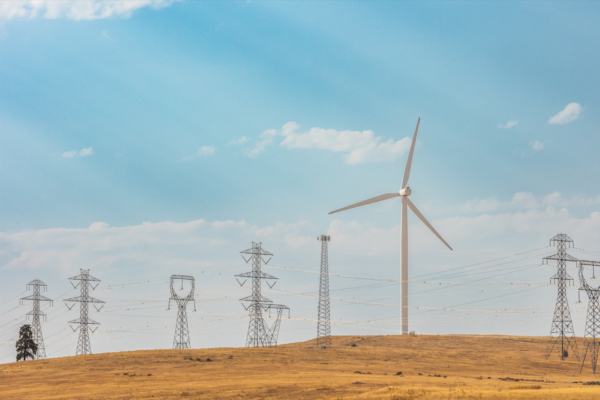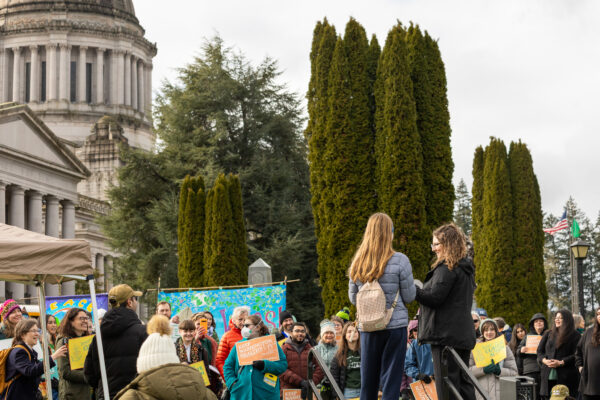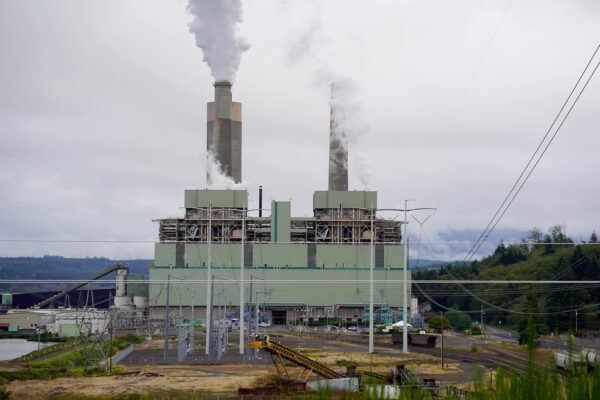The permit, granted by Cowlitz County commissioners on November 23, authorizes construction of a massive coal export facility to handle 5 million tons of coal to Asia annually.
The coalition’s appeal, filed with the Washington State’s Shorelines Hearings Board, says officials sidestepped all scientific review and pushed through approval of the severely deficient permit. The groups seek to have the Shoreline Hearing Board invalidate the permit and require the county to complete all the required analyses.
“The county commission rubber stamped the permit and ignored their duty to act in the best interest of the community,” said Earthjustice attorney Jan Hasselman, who filed the appeal on behalf of the groups. “They refused to see the impacts of increased coal mining, more trains roaring through the Columbia Gorge and the effects of mercury on children and adults living here and far away.”
“Dirty coal is bad news for our community,” said Gayle Kiser, a resident of the Longview-Kelso area. “We need to rebuild our economy with technology and clean energy, not a risky investment in Asian coal plants.”
The coalition said the Cowlitz County permit contains a number of major deficiencies, including:
- Failure to study the consequences of burning coal in Asia
- Failure to consider the effects of potentially increased coal mining
- Failure to analyze the effects of transporting coal hundreds of miles via train (where a large volume of coal dust is generally lost)
- Failure to analyze the effects of transporting the coal via ship to Asia
“Coal companies are targeting Washington as a gateway for coal export to China,” said K.C. Golden, Policy Director of Climate Solutions. “This one facility would export about as much coal as the whole state of Washington now uses, and it’s just the tip of the iceberg. It flies in the face of the state’s commitment to climate solutions and leadership in the clean energy economy. The most jobs, the best jobs, are in building our clean energy economy, not in serving as a resource colony for Asian economies.”
“Washington has a choice. We can either be leaders in a clean energy future and economy, or we can be the export hub for the western United States for dirty coal to Asia,” said Brett VandenHeuvel, Executive Director of Columbia Riverkeeper.
The Longview coal export project, about 126 miles south of Seattle and 40 miles north of Portland, Oregon, would be the first of several proposed new coal terminals on the West Coast. Energy companies would use the terminal to send millions of tons of coal from Montana and Wyoming through the Columbia Gorge by train, then load it into ships bound for Asia. Australia-based Ambre Energy would annually export five million tons of coal from the Longview port.
Ambre is one of several major coal companies that have approached Northwest ports, including the Port of Tacoma, about creating new coal export terminals. Despite the port’s effort to diversify its business away from container handling, the Tacoma port has told the coal companies it isn’t interested.
“This proposal has grave implications for our health and our climate,” said Doug Howell, Senior Representative for the Sierra Club’s Coal Free Northwest campaign. “Allowing callous coal companies to offshore their carbon pollution where it will do just as much damage to the climate is not an acceptable proposal. People in the Pacific Northwest are already suffering the damage done by pollution coming across the Pacific from Asia and this will only make the problem worse.”
The appeal was filed by Earthjustice on behalf of Climate Solutions, Sierra Club, Washington Environmental Council and Columbia Riverkeeper.
About the Shorelines Hearings Board
The Shorelines Hearings Board hears appeals from permit decisions, and from those shoreline penalties jointly issued by local government and Ecology, or issued by Ecology alone. The Board is not affiliated with any other unit of government.
Three of the SHB members, who also serve as the Pollution Control Hearings Board, are full time employees, appointed by the governor and confirmed by the senate. At least one member is an attorney. The three other members, who serve part time, are: the State Land Commissioner or designee, a representative from the Washington State Association of Counties, and one from the Association of Washington Cities.
Read the petition here.


